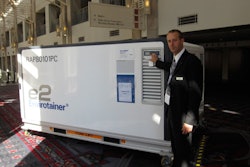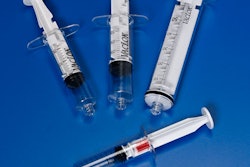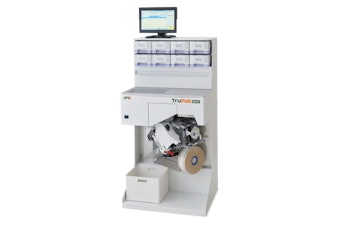A million-plus reasons to value the pharmaceutical cold chain
More than 500 attendees and nearly 60 exhibitors energize the 8th Cold Chain Distribution for Pharmaceuticals Global Forum in Philadelphia.
Sep 22, 2010
Researched List: Blister Machines for Life Sciences
Need a blister machine for life sciences packaging? Our curated list features companies serving pharmaceutical, medical device, nutraceutical, and cosmetic industries. Download to access company names, locations, machine specifications, descriptions, and more.
Download Now
Sustainable Healthcare Packaging Solutions That Work
Industry leaders share proven strategies for reducing packaging emissions by up to 70% while meeting safety and regulatory requirements.
Read More
Downloads



















